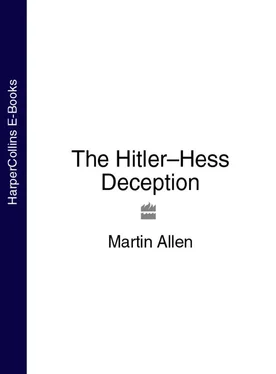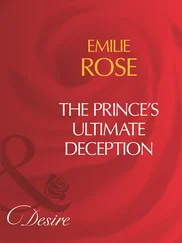The important peaceable attempts (i.e. those that could be directly connected to Hitler’s interests) between 1939 and 1941 fall into a clearly discernible pattern. As soon as one of them began to falter or fail, so keen was Hitler to have peace in the west that another was instantly begun through some other medium – be it by banker, businessman, diplomat or royal – in an attempt to keep the dialogue going.
There were, however, two exceptions to this rule.
The first occurred from mid-November 1939 to July 1940, directly following the failure of Venlo. It was a time when, through a French-American named Charles Bedaux, and later through Baron Oswald von Hoyningen-Huene, Germany’s Ambassador in Lisbon, Adolf Hitler attempted to open a line of communication to the former King Edward VIII, now the Duke of Windsor, whom he mistakenly believed was still an influential personality in British politics.
The other period of inactivity lasted from the second half of 1940 until mid-1941. At this time Hitler believed that the best opportunity for peace was through the efforts of Albrecht Haushofer and Rudolf Hess, whose high-level negotiations were aimed at permanently removing Britain from the war.
What this reveals is that Hitler repeatedly engaged in secret and complex efforts to negotiate his way out of a war in the west he did not want, except when he believed he had found an inside track to undermining the Allies’ (i.e. Britain’s) resolve and ability to continue the conflict – a carrot-and-stick approach to persuade or force Britain to the negotiating table. Two attempts to proffer the carrot – Dahlerus and Venlo – had failed, so now Hitler determined to use the stick.
Hitler’s first attempt to force Britain to the table involved a French-American businessman named Charles Bedaux, a close friend of the Duke of Windsor, who (according to documents in British, German and American archives) offered to act as an intermediary carrying messages between Germany and the former King Edward VIII. 32
Charles Bedaux was no novice in the world of espionage. He had been a spy for Germany in the United States during the First World War, 33and had, in boom-time America of the 1920s, prospered to become a multi-millionaire. By the 1930s he was back in Europe, where his home, the Château de Candi, swiftly became known as a hotbed of Nazi intrigue and plotting. 34During the 1930s Bedaux had played a key role in the reorganisation of German industry which enabled Hitler’s rearmament programme to take place. He thus moved in very high Nazi circles indeed, knew Hitler personally, and even had a villa at Berchtesgaden within sight of the Führer’s Berghof. 35
In 1937 Bedaux had hosted the wedding of the abdicated King Edward VIII to the American divorcee Wallis Simpson, at the Château de Candi. Having firmly insinuated himself into the Windsors’ lives, he swiftly became responsible for their tour of Nazi Germany, which although well received in Germany, was a public-relations disaster in Britain, where Edward had hoped to restore his standing. Thereafter the relationship had cooled, but in October 1939 Bedaux reported exciting news to Hitler concerning the Duke of Windsor, with whom he was back on friendly terms.
What had occurred was that in late September 1939, Reichsleiter Alfred Rosenberg, head of the Aussenpolitisches Amt, received a postcard from an old friend, purporting to be in neutral Switzerland and asking for a meeting. The friend, a Balt named Baron ‘Bill’ de Ropp of east Prussian stock, was also an old acquaintance of Group Captain Winterbotham, who was near the top of British Air Intelligence. De Ropp also had close associations with British Intelligence, and had been of considerable assistance to the British secret service during the 1930s.
After checking with Ribbentrop, Rosenberg travelled to Switzerland at the beginning of October. He was soon rubbing his hands in glee at what de Ropp told him, reporting back to Berlin that: ‘Because of the war psychology prevailing in England and the weak position of Chamberlain it was [currently] beyond to power of the [Air] Ministry [to move] in the desired direction of a termination of hostilities.’ However, he commented that de Ropp had also informed him that certain top men within the Air Ministry felt that Britain would agree to peace if ‘considerable losses on the part of the British Air Force and the related effects on the Empire [occurred]. It is believed then that the views represented by the Air Ministry would have to be taken into account, since the Empire could not permit its air strength to be reduced beyond a certain point.’ 36
At a meeting held a week later de Ropp went further. He informed the Germans that the British Air Ministry, whom he was now clearly claiming to represent, was extremely concerned about the possible politico-economic damage Britain and Germany would sustain if the conflict became a protracted war. This, it was claimed, would lead to ‘the decline of the West, of the Aryan race, and the era of the Bolshevization of Europe, including England’. De Ropp’s next statements caused the surprised German official to report back to Berlin that the British Air Ministry did not support its own government’s policy regarding a continuation of the war, and that the Air Ministry was ‘convinced that the war would be decided by the Luftwaffe’. He went on to state that it would ‘therefore depend on the Air Ministry to explain to the British government that, in view of the losses it had sustained, it no longer found itself in a position of being able to continue the war’. 37
What de Ropp had intimated to the Germans was that if Britain suffered a swift military defeat in western Europe, Chamberlain might well loose his nerve and negotiate an end to the hostilities before any further damage to Britain – particularly to her ability to control the Empire – could take place. This idea would germinate in the Führer’s mind, and would become a strategy for the next seven months of conflict.
It also saved his life, for on the evening of 8 November 1939 Hitler left the Bürgerbräukeller early in order to travel back to Berlin for a meeting with Charles Bedaux at the Reich Chancellery the following morning. 38He was thus mightily impressed both by the providence that had saved his life and by all that Bedaux was about to tell him.
With the coming of war the Duke of Windsor had been given the honorary rank of Major-General, and attached to the British Military Mission in Paris. His official role was to conduct a morale-boosting tour of the French front. However, the Chief of the Imperial General Staff, General Sir Edmund Ironside, also gave Windsor other secret orders. He was covertly to observe the strategic details of France’s defences, and submit a series of reports to London. The objective of this covert intelligence-gathering operation was to give Britain’s military planners a clearer picture of France’s defensive strengths and weaknesses, which they could use to formulate tactics to counter any potential German offensive in the west. The Duke’s mission was therefore important and very secret. As the head of the British Military Mission in Paris, Major-General Howard Vyse, declared: ‘It will be realised that to give the French any sort of inkling of the source of this information would probably compromise the value of any missions which I may ask HRH [the Duke of Windsor] to undertake subsequently.’ 39
Unfortunately, however, Charles Bedaux also gained access to this highly confidential intelligence, apparently with the Duke of Windsor’s connivance. This occurred because Windsor believed that a war between France, Britain and Germany was a disaster that would lead to the Soviet domination of Europe; and the Duke hated and feared Communism very much indeed.
Читать дальше












